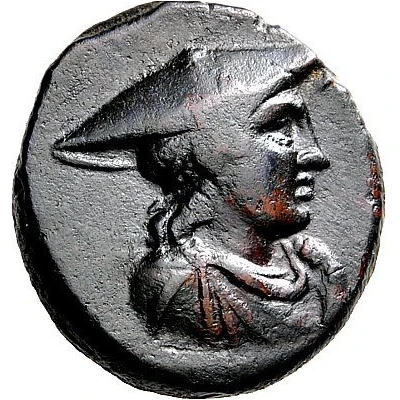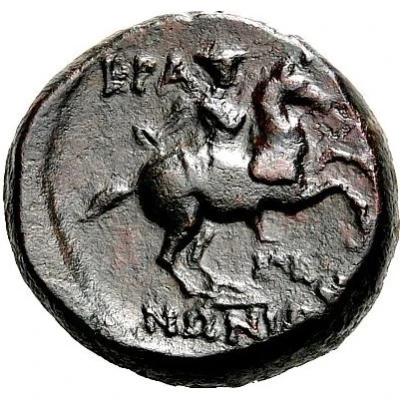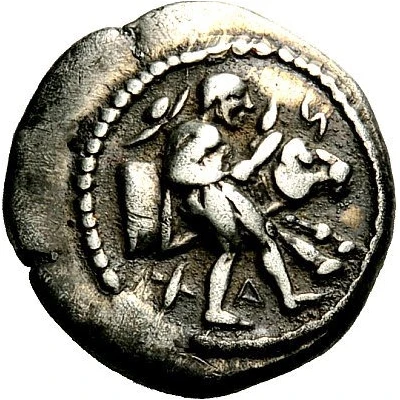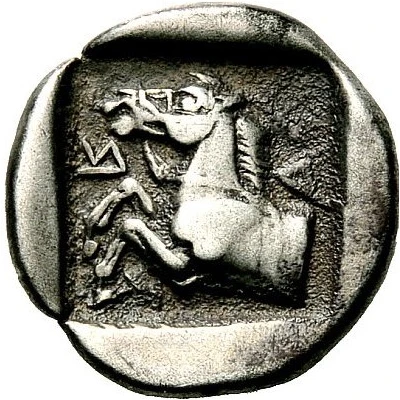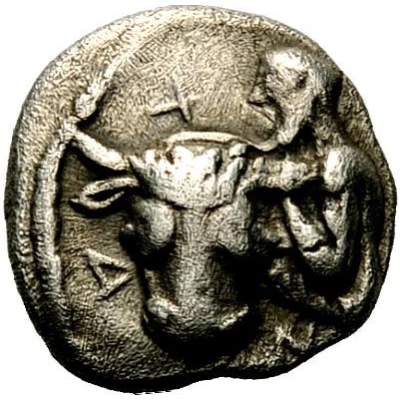
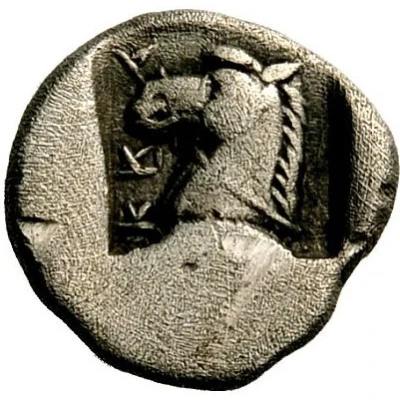

© Nomos AG
Obol 479 BC - 465 BC
| Silver | 0.87 g | - |
| Issuer | Krannon (Thessaly) |
|---|---|
| Type | Standard circulation coin |
| Years | 479 BC - 465 BC |
| Value | Obol (⅙) |
| Currency | Drachm |
| Composition | Silver |
| Weight | 0.87 g |
| Shape | Round (irregular) |
| Technique | Hammered, Incuse |
| Demonetized | Yes |
| Updated | 2024-10-10 |
| Numista | N#170769 |
|---|---|
| Rarity index | 100% |
Reverse
Head of bridled horse to left; all within incuse square
Script: Greek
Lettering: ΚRΑ
Interesting fact
The Obol coin was used as a form of currency in ancient Greece, specifically in the region of Thessaly, and it was made of silver. The coin weighed 0.87 grams and had a distinctive design, featuring a helmeted head of Athena on one side and a horse on the other. The Obol was a standardized currency, meaning that it was widely accepted and used throughout the region, and it was also used as a reference point for other currencies. Despite its small size, the Obol played a significant role in the ancient Greek economy and was an important symbol of the region's wealth and power.
Price
| Date | Mintage | VG | F | VF | XF | AU | UNC |
|---|---|---|---|---|---|---|---|
| ND (479 BC - 465 BC) | - | - | - | - | - | - |
Values in the table are based on evaluations by sales realized on Internet platforms. They serve as an indication only for Obol (479 BC - 465 BC) coin.
